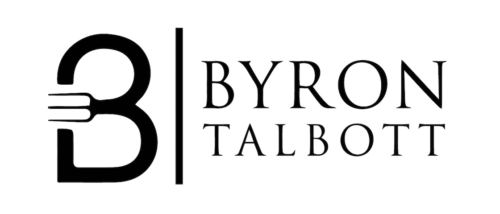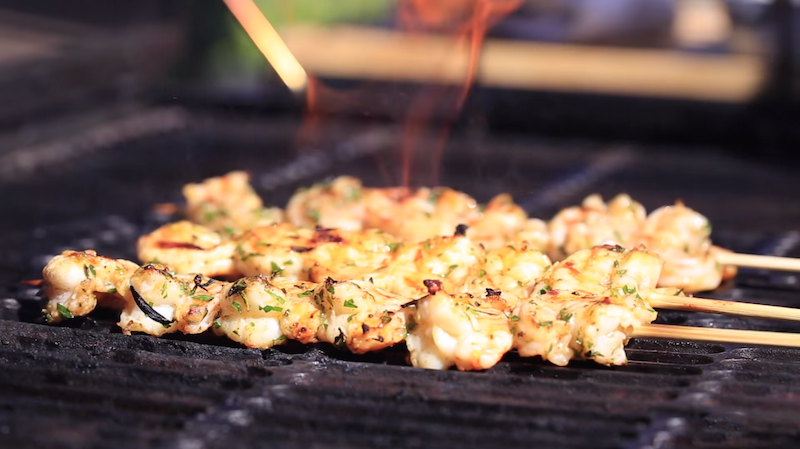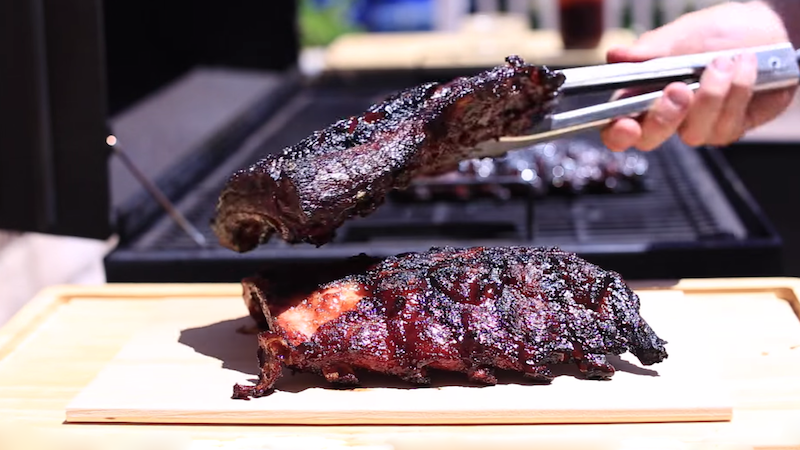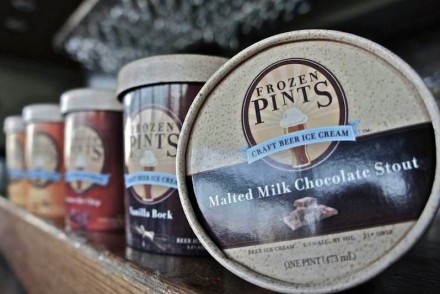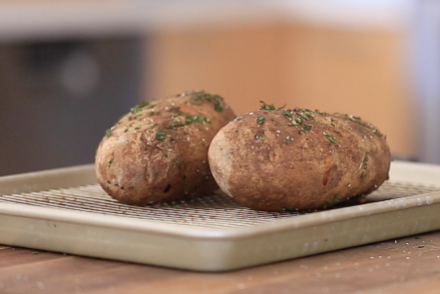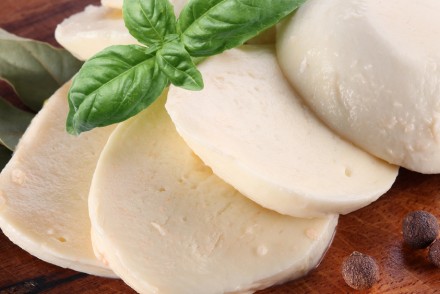The debate of Charcoal vs. Gas has been going on for decades and there’s a reason the answer isn’t finite…it’s because BOTH have their pros and cons. Many people root for one or the other, but like most things in life, there is a spectrum. Hopefully I can help you make an informed choice of your own by pointing out the benefits and drawbacks of both, starting with gas.
Gas grills are simply convenient. They take little to no prep time. Simply turn a dial and go! Temperature control is more precise, not 100% (various weather conditions and poorly located temp gauges can cause unreliable temps), but still, maintaining a temperature range over longer periods of time is much easier and more accurate with a gas grill. No need to stop grilling in between slow cooking, like you have to do when it comes time to change out burnt up charcoal for fresh briquettes. Cleaning is also a breeze compared to charcoal—still required if you want to maintain your investment, but very simple in comparison. Zone cooking is as simple as adjusting a couple of dials. Makes cooking multiple items with different heat requirements no problem at all. The biggest draw back of a gas grill revolves around flavor…
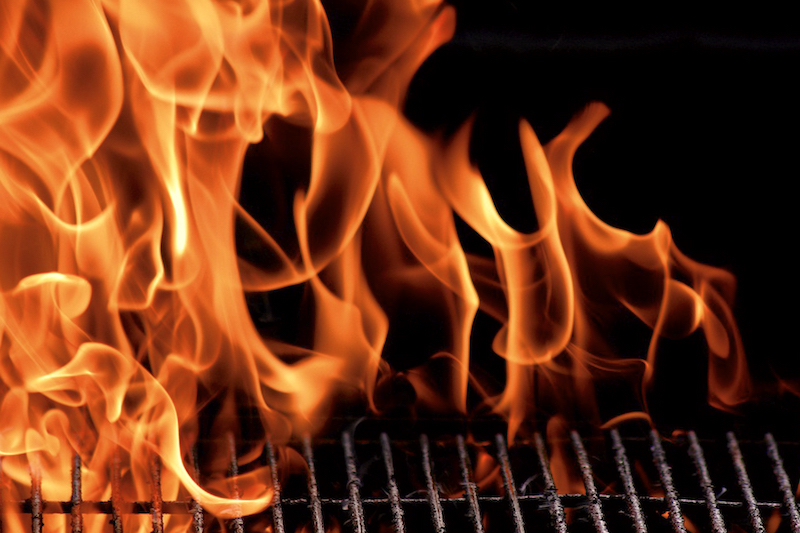
In that regard, it’s important to note that gas grills come in multiple forms. Natural gas is more affordable and cleaner, but that requires a built in BBQ and plumbing to the home’s gas line. That’s why the most common type of gas used for grilling is propane and the biggest debate between using charcoal and propane focuses around flavor.One misconception is that propane will affect the taste of food; known as the “Mercaptan Myth.”
It’s important to know that natural gas and propane, in their natural form, are scentless. Mercaptan is mixed with the gases to give off a strong odor—that way people can smell gas in case of a leak. The misconception is that mercaptan will effect the taste of your food…that’s FALSE. Mercaptan, when heated, turns into sulfur dioxide, which becomes sulfuric acid. There is more sulfuric acid present in the meat itself and the seasoning you use than will ever be produced by grilling with propane. So what’s the drawback then? The drawback is…charcoal can affect the flavor of food, and die-hard charcoal users will tell you it makes all the difference in the world! And perhaps it does…
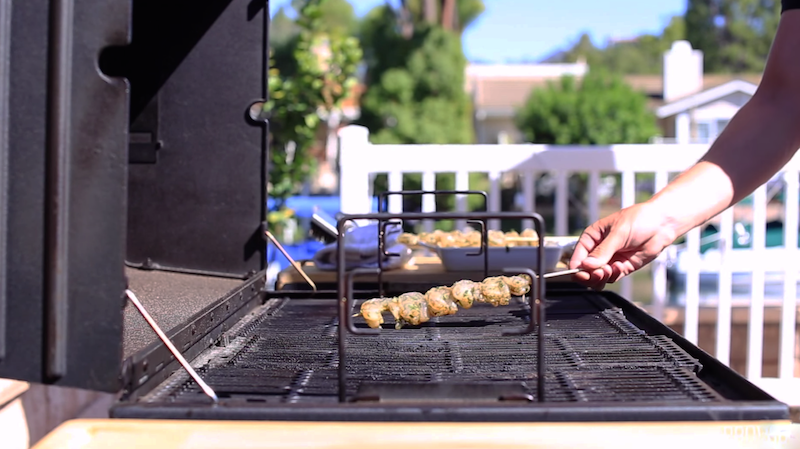
The main difference between gas, charcoal, and the flavors they produce, is smoke. Charcoal simply makes more smoke than gas. Charcoal also contains cellulose and lignin, which contribute to the smoky flavor you get when cooking with it. The most important thing to note is that this flavor boost is only noticeable with food that is grilled low and slow. For the typical day-to-day grilling, like BBQ hot dogs and burgers, there is simply not enough time, or exposure, to the charcoal smoke to make any notable flavor changes. That’s why many people will prefer to use a gas grill for quick BBQ tasks. That and the cleanup and startup of a charcoal grill is much more involved. Charcoal can be difficult to light and takes more time to reach desired temperatures than gas. That and a charcoal grill must be shoveled and cleaned out after every use if you want to maintain your grill for the long haul.
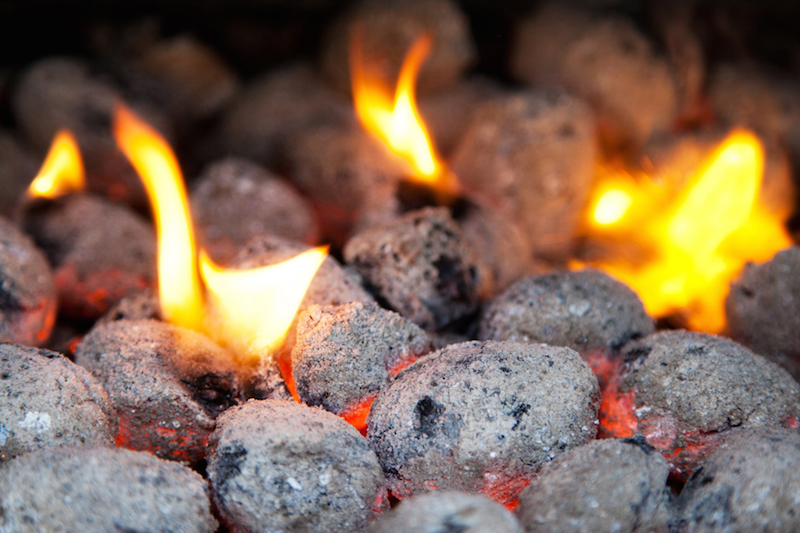
The major pro and the reason this method of grilling is often preferred, doesn’t just surround the smoky taste charcoal provides. Charcoal grills can reach temperatures almost double that of your average gas grill. Typically gas models top out at about 500ºF (of course more expensive ones can go higher/hotter), while charcoal grills can reach up to 900ºF! That’s highly desired when is comes to cooking food hot and fast, as well as producing the highly sought after all around sear without grill marks. Gas grills sometimes comes with a sear plate, but they tend to be VERY expensive and quite small.
Though the lack of temperature control can be an issue for charcoal users, there is a method known as two-zone cooking and it’s a prevalent practice of avid charcoal users. Simply put, only ignite half the grill with charcoal and place the food closer or farther from the flame to reach the temperature desired. Practice makes perfect and so can this method…perfect BBQ that is!
At the end of the day, both methods have their pro’s and con’s, but the choice of which to choose can come down to two major components…flavor or convenience. All this said, what’s you’re preferred method of grilling?
